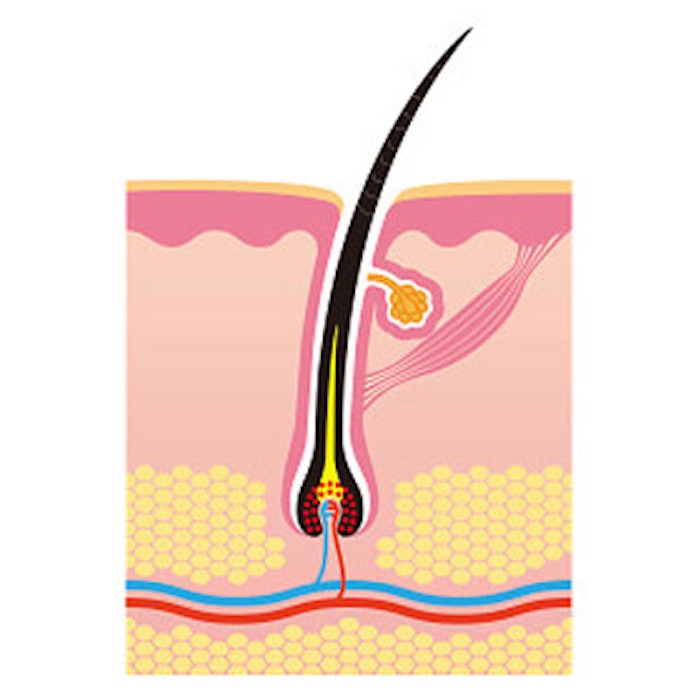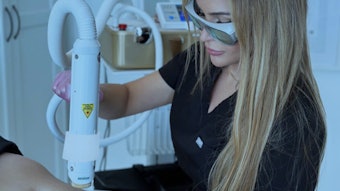
In a study published in Lasers in Surgery and Medicine (July 2015), researchers investigated the effect of ablative fractional laser treatments on hair follicle regrowth.
Ablative fractional CO2 laser treatments were administered to the shaved dorsal skin of seven-week-old C57BL/6 mice whose hair was in the telogen stage. Twelve mice were treated at various energy (10 to 40 mJ/spot) and density (100 to 400 spots/cm2) settings to determine the proper dosage for maximal effect, then six mice were treated at the decided dosage. Skin samples were obtained via excision biopsy from the dorsal aspect of each mouse, and were used for the immunohistochemistry and reverse transcription polymerase chain reaction assays to examine hair follicle status and their related molecules.
The researchers found that the most effective dosage was 10 mJ/spot and 300 spots/cm2 setting. The anagen conversion of hair was observed in the histopathological examination, while Wnt/β-catenin expression was associated with hair regrowth in the immunohistochemistry and molecular studies. They concluded that ablative fractional lasers appear to be effective for inducing hair regrowth via activation of the Wnt/β-catenin pathway in vivo and can potentially be developed as a new treatment option for stimulating hair regrowth.
Photo copyright Getty Images.











